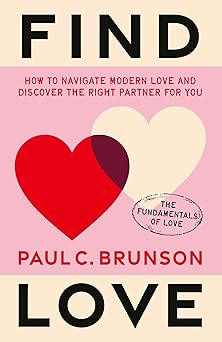
The Way of the Superior Man by David Deida is not just a self-help book. It is a provocative spiritual and psychological journey into the heart of masculinity, purpose, and authentic living. In its 20th Anniversary Edition, this widely discussed work revisits timeless lessons while remaining grounded in the original’s raw, intense voice. The book seeks to awaken and refine a man’s consciousness by aligning his inner truth with his outer actions, especially when it comes to women, career, and desire.
Purpose and Identity
At the core of Deida’s philosophy is the principle that a man must live from his deepest purpose. The book opens by challenging readers to uncover the true direction of their lives. Deida doesn’t offer a cookie-cutter formula for success. Instead, he insists that fulfillment comes from living in alignment with one’s soul-level mission, beyond societal norms and fleeting goals. A man who lacks clarity in his purpose, according to Deida, will find himself unstable, dissatisfied, and unable to sustain deep romantic relationships.
This theme becomes the structural backbone of the book. Deida’s approach is not practical in a conventional sense; rather, it’s spiritual, introspective, and rooted in a kind of energetic discipline. He encourages men to ask themselves uncomfortable questions and to be willing to stand firm in their truth, even when the world around them demands conformity.
The Dynamics of Polarity in Relationships
Much of the book is devoted to exploring the dynamics between masculine and feminine energies. Deida draws a clear line between biological sex and energetic polarity. The masculine energy, which he defines as direction, consciousness, and presence, often resides in men but can be found in women as well. The feminine energy, characterized by flow, emotion, and love, is not limited to women. Relationships, according to Deida, thrive on the tension and dance between these two poles.
He offers a powerful assertion that the feminine tests the masculine not out of malice, but to measure the strength of its presence. When a man reacts, becomes defensive, or seeks validation, he fails the test. But when he remains grounded, open-hearted, and non-reactive, the feminine can relax into love and trust. This insight reframes common conflicts in romantic partnerships and challenges men to develop emotional maturity and spiritual strength.
Sexual Energy and Expression
One of the boldest and most controversial aspects of the book is its exploration of male sexuality. Deida treats sexual desire not as something to be repressed or indulgently satisfied, but as a vehicle for personal transformation. He believes that sexual energy, when mastered, becomes a pathway to spiritual awakening.
Deida speaks candidly about practices such as sexual transmutation, non-ejaculatory intercourse, and full-bodied lovemaking that transcends mere physical pleasure. These topics are not approached from a clinical perspective but through the lens of spiritual embodiment. The writing in these sections is poetic, challenging, and sometimes uncomfortable—but always direct.
The central message is clear: sexuality, in its deepest form, can either enslave or liberate a man, depending on how consciously it is approached.
Work and Contribution
Deida doesn’t view a career as just a means of income. Instead, he presents work as an extension of a man’s purpose. He urges men to view their professional life as a sacred offering—something that should express their deepest truth and have a tangible impact on the world.
He also warns against comfort, stagnation, and mediocrity. If a man finds himself too at ease in his routine, he is encouraged to shake himself out of complacency. For Deida, growth is found at the edge of discomfort, and it is a man’s responsibility to remain at that edge—professionally, emotionally, and spiritually.
Tone and Style
The tone of The Way of the Superior Man is unapologetic and direct, with moments of poetic flourish. Deida writes as if addressing a student in meditation or a warrior in training. There is no hand-holding or sugar-coating. His language is evocative, even mystical, at times, which may not appeal to readers seeking a more analytical or psychologically neutral approach.
At the same time, the book’s structure—composed of short, digestible chapters—is highly accessible. Each chapter focuses on a distinct principle or insight, making it easy for readers to revisit specific teachings.
Reception and Interpretive Challenges
The book has received both acclaim and criticism. Supporters praise it for helping them gain deeper clarity in relationships and personal growth. Critics argue that its gendered framework may feel outdated or too rigid. Deida’s emphasis on energetic polarity and spiritual masculinity may not resonate with readers who prioritize modern psychological models or gender neutrality.
However, whether one agrees with every principle or not, it is difficult to deny the impact of the book. It offers a compelling, integrated view of manhood that goes beyond surface-level advice and invites readers to transform from within.
Final Thoughts
The Way of the Superior Man is a rare book that manages to combine spiritual depth, emotional challenge, and practical insight into a cohesive philosophy of mature masculinity. It speaks to the part of a man that yearns for direction, passion, and integrity. The 20th Anniversary Edition serves as both a testament to its enduring relevance and an invitation for a new generation to step into its demanding path.
This is not a book for the faint of heart. It confronts readers with difficult truths and asks them to transcend their limitations. But for those ready to walk the path of the “superior man,” it offers a map—not to perfection, but to deeper consciousness, fuller love, and a more fearless life.


